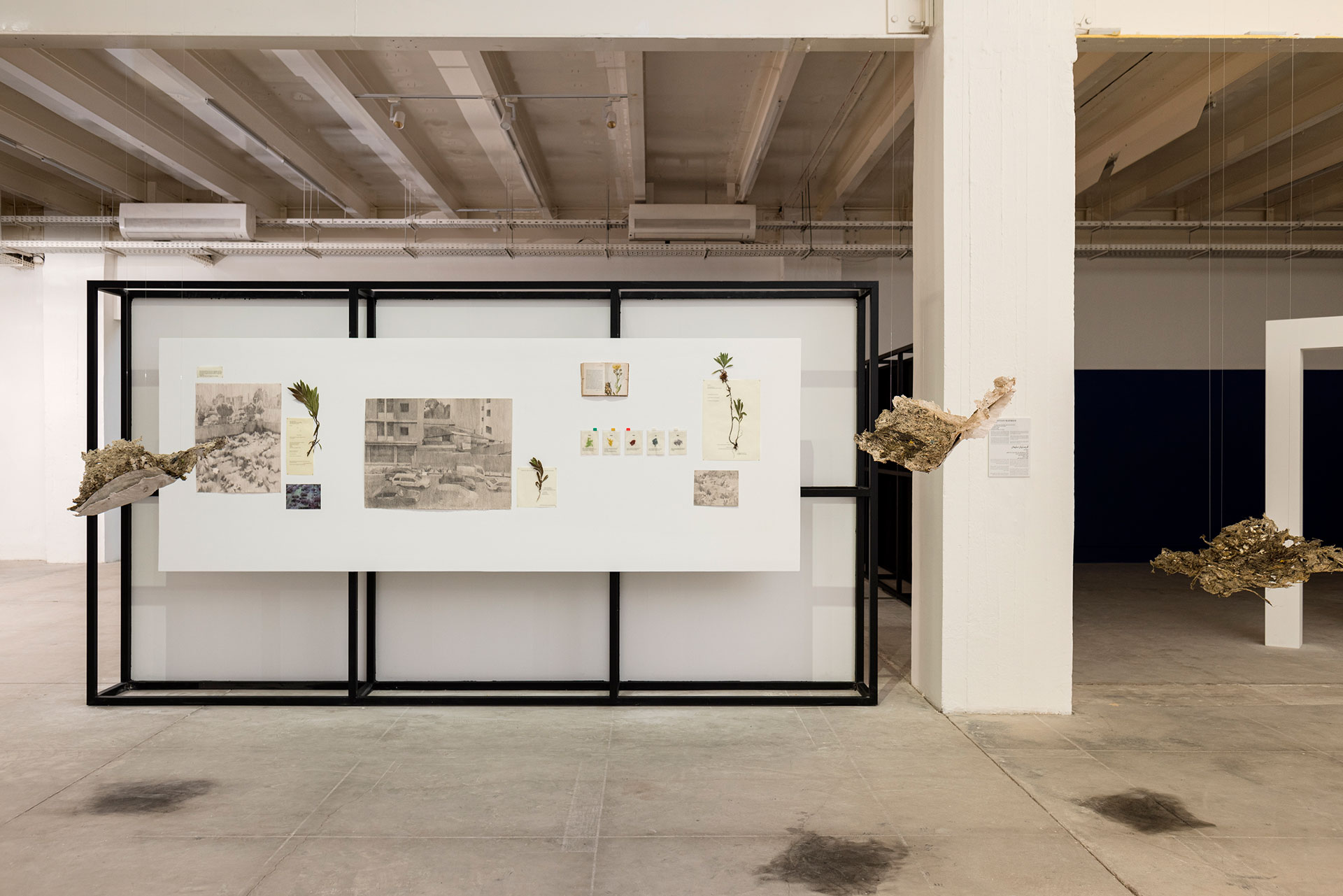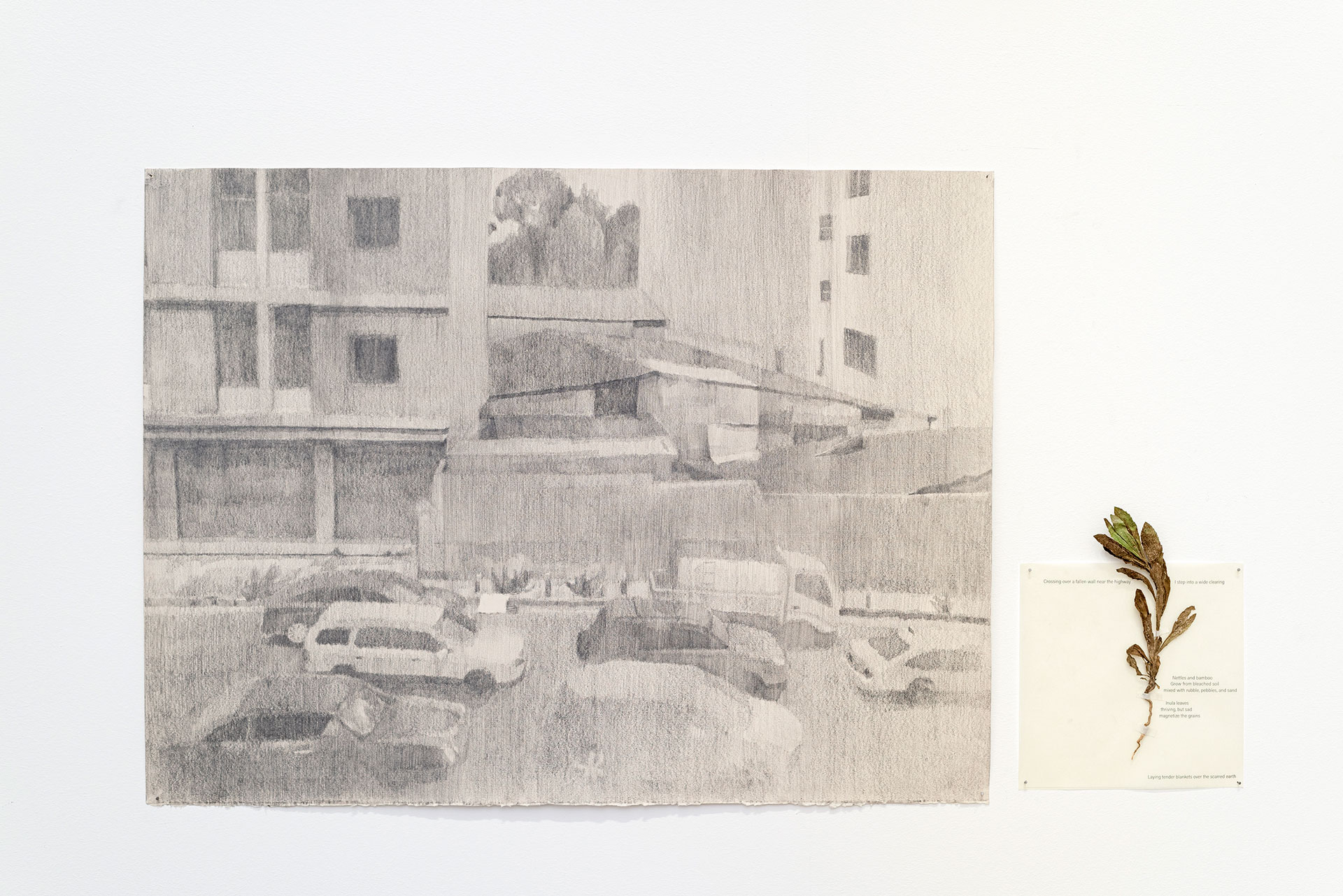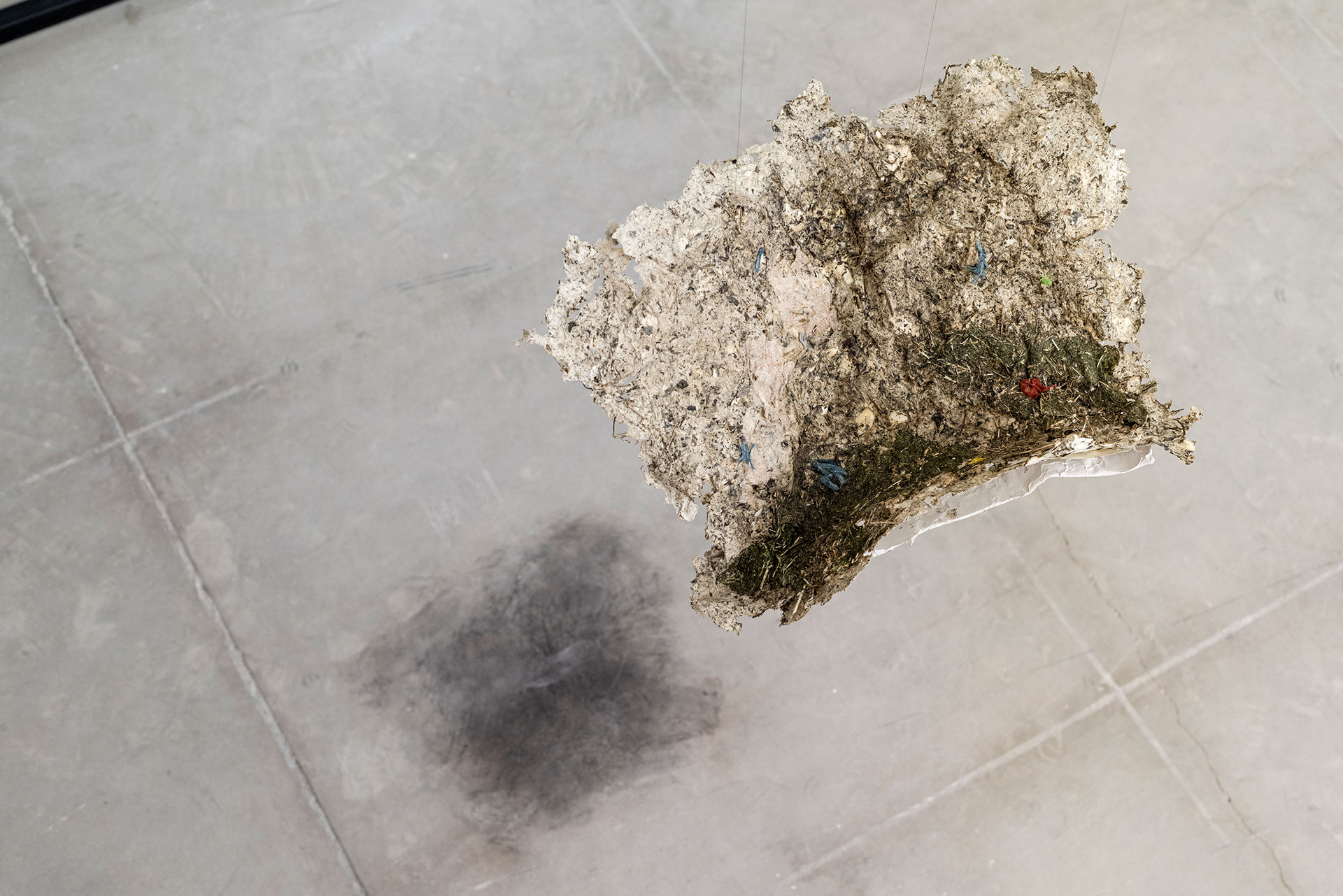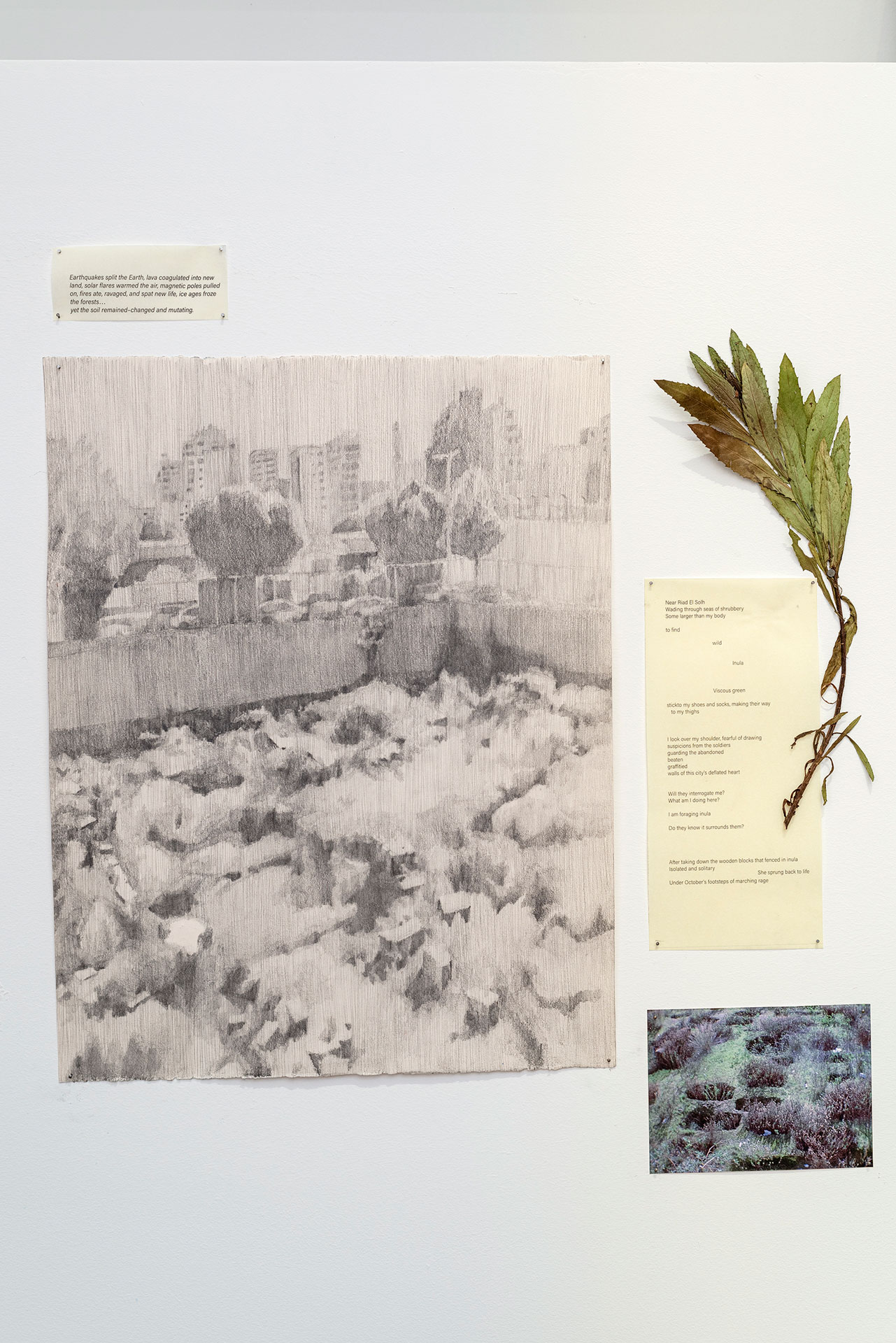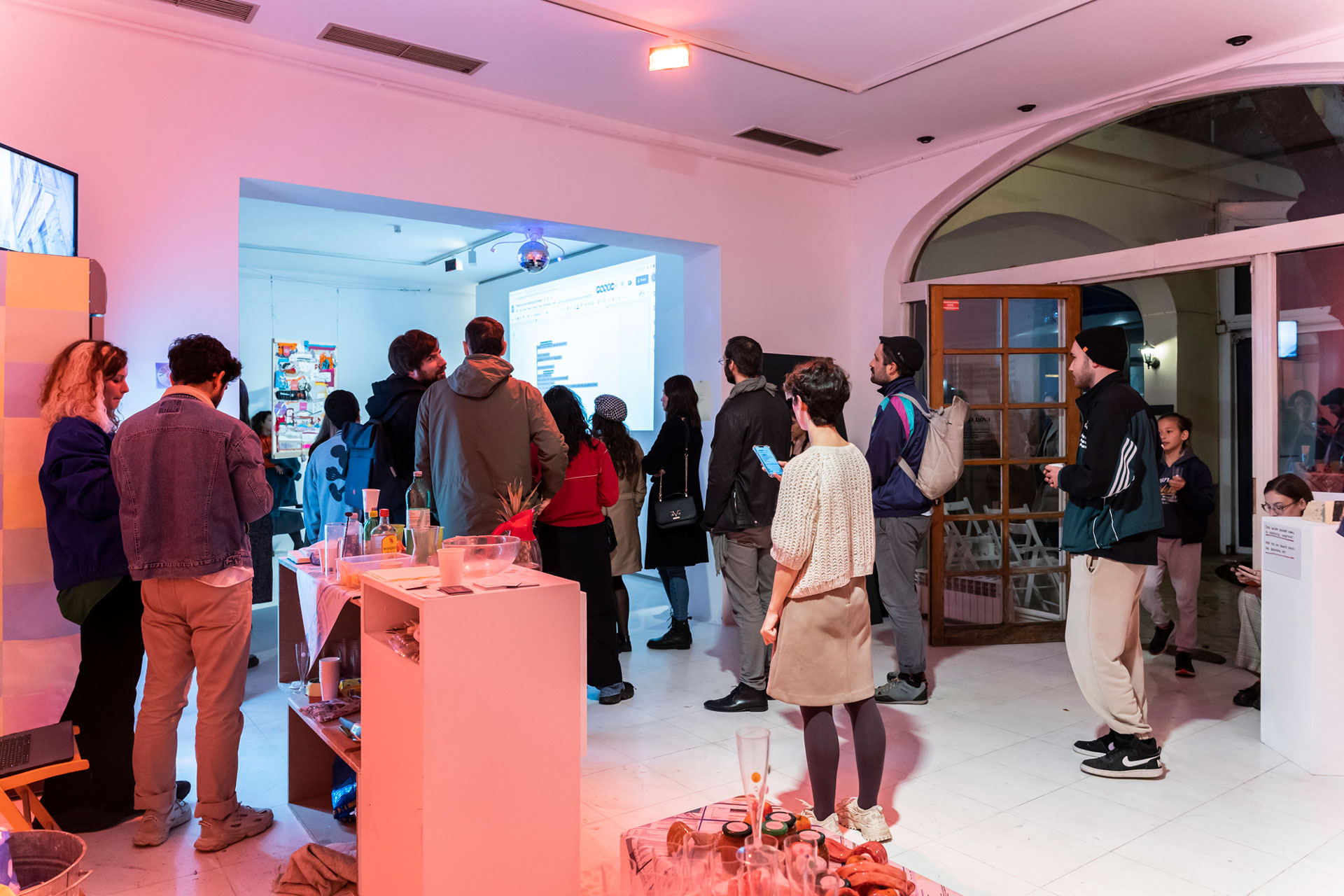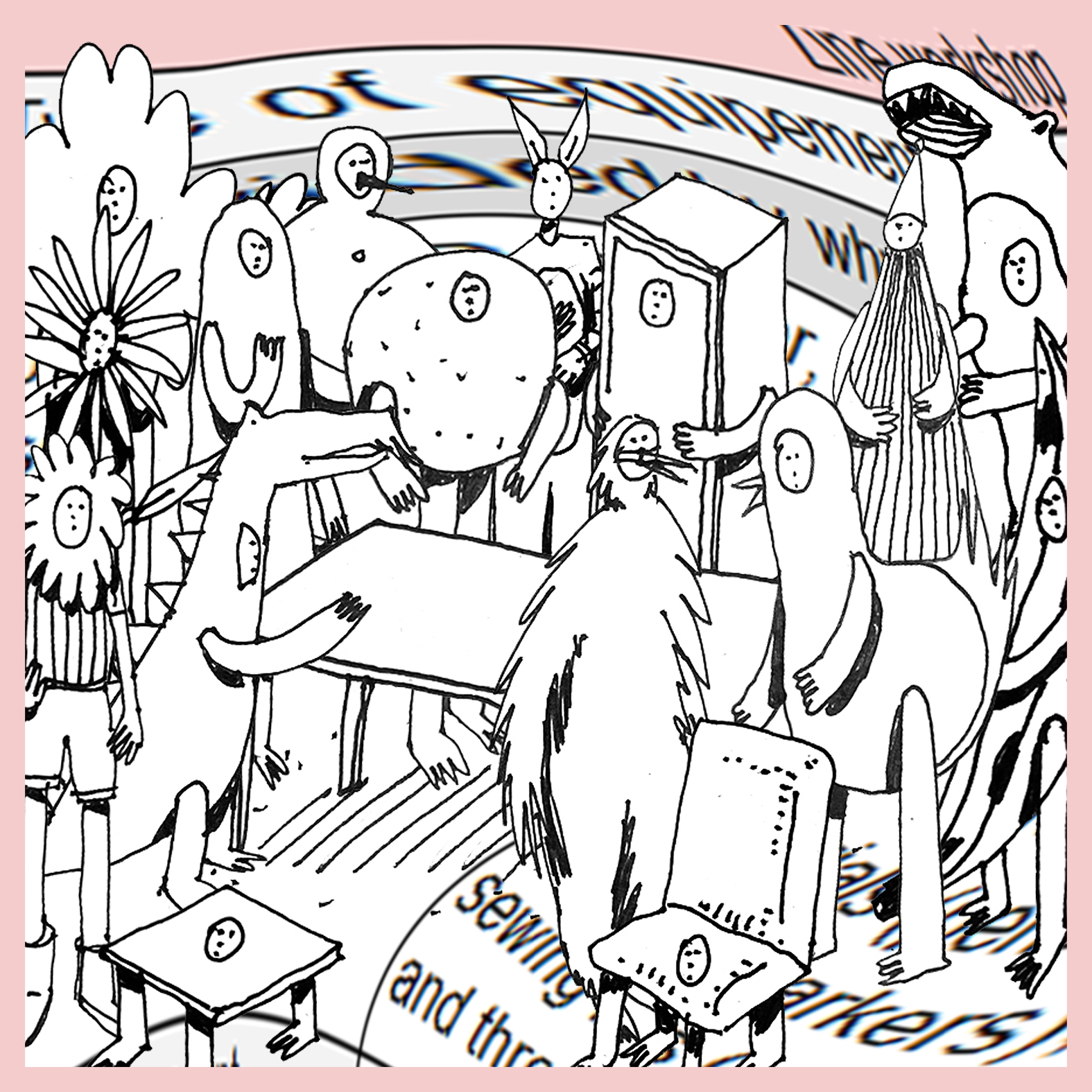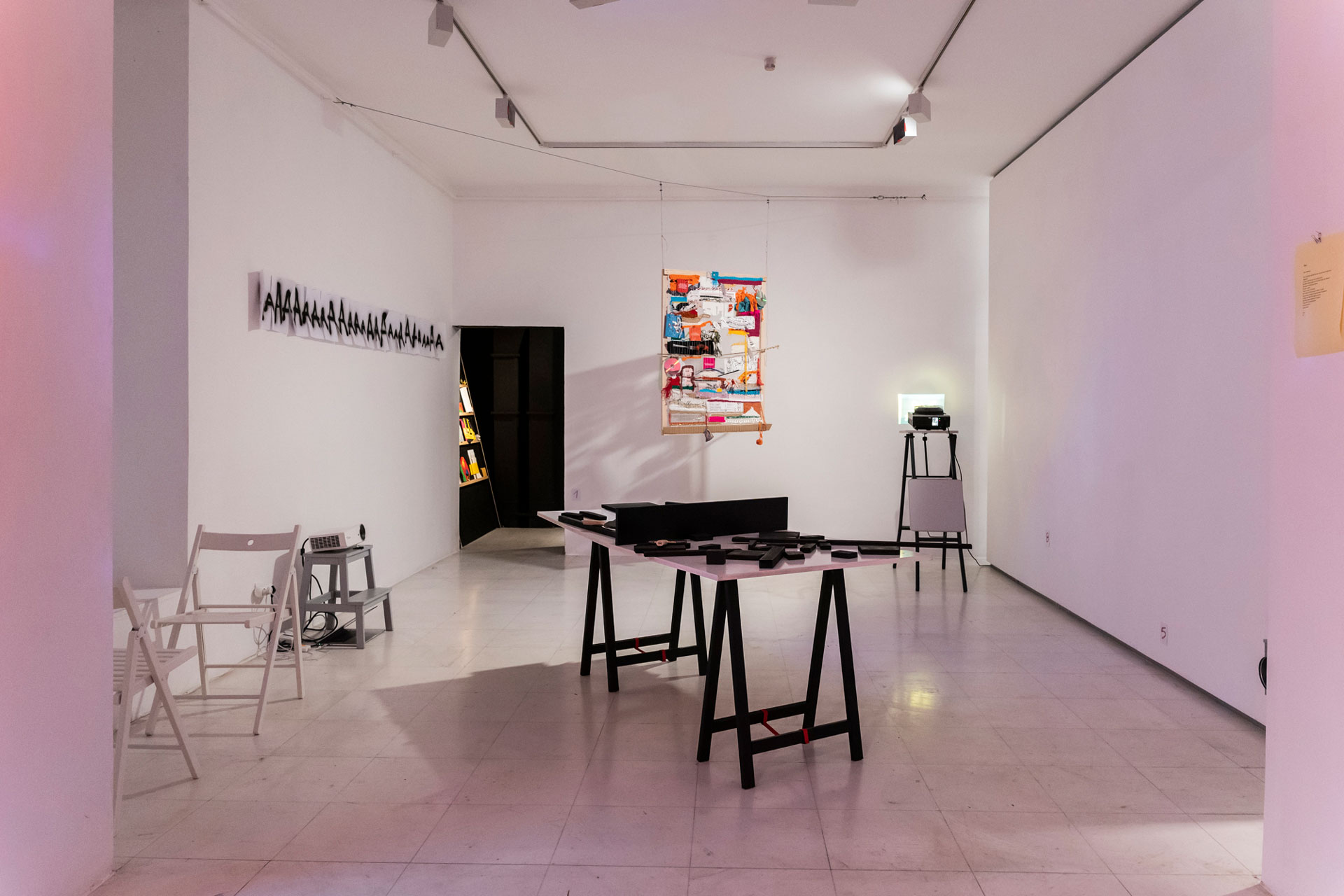Furn El Harra
2025
Collaboration with Renoz
intervention / exhibition
200cent - barcelona
Furn ElHarra (Arabic for “the neighborhood bakery”) is a collaborative, site-specific installation by Christian Sleiman and Renoz that transforms 200Cent into a functioning Lebanese bakery—improvised, familiar, and dislocated.
What does it take to live here?We reach for what we know: we plant, we cook, we rebuild. We gather fragments—gestures that bind us to the past while forging space for something new.
Furn ElHarra is a site built from memory, but not trapped in it. The manakish served are thin, warm, and slightly charred. They come with a newspaper. Headlines blur across time. New wars echo old ones. Migration becomes less a rupture than a rhythm. The clock in the bakery loops endlessly. Bread is made even when no one is there to eat. Yet, people do arrive. Strangers gather. The smell of za’atar invites pause, even if briefly. The city absorbs its presence without fully knowing what it means.
Like other spaces shaped by migrating communities, the bakery opens small cracks in the structures surrounding it—glimpses of another way to exist, not built on permanence, but on relation.
-
Accompanying the intervention is a previous edition of Posttraumatic, “Genocii”. In parallel, we’ve created a special issue that extends the research behind Furn ElHarra—an archival tool that includes a conversation about the project, a collective statement, selected articles on Lebanon’s cycles of migration, and satirical newspaper elements.



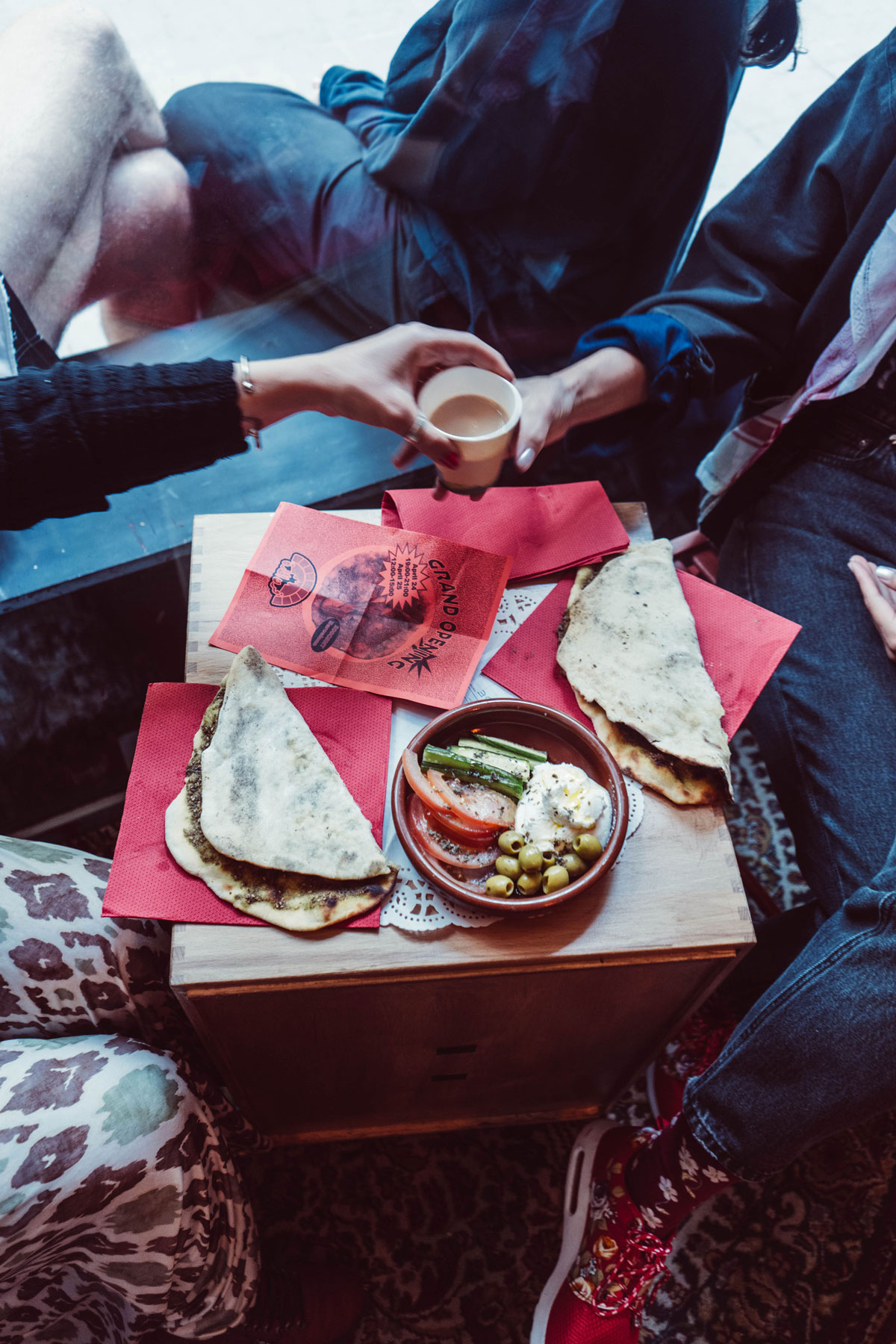






by the means at hand
2024
ink on paper
42 x 28 cm
croation pavilion at the 60th venice biennale
Engaging with the theme of Adriano Pedrosa’s main exhibition for the Venice Biennale, Stranieri Ovunque—Foreigners Everywhere, Vlatka Horvat’s project for the Croatian Pavilion, curated by Antonia Majaca, exists as an accumulative exhibition of artworks by a wide-ranging group of international artists living as “foreigners,” reflecting on questions and urgencies of the diasporic experience.
For the exhibition, Horvat is inviting artists living in diaspora all over the world to engage in a series of reciprocal exchanges of artworks and other materials, all of which are sent between Venice and other places by improvised means, with the help of various friends, acquaintances and even strangers travelling to Venice, who are enlisted as informal couriers for the project.
The title of the project—By the Means at Hand—refers to the improvised transport systems whereby individuals activate informal networks to deliver letters, parcels, documents, money, and other material goods to family members and others who live far away. While such practices are born out of social dispersal, migration, and displacement, the networks they give rise to build effectively on wider principles of solidarity, shared struggle, mutual support, and friendship—factors that the project emphasizes as prerequisites for co-existing with others, and as key elements in the toolkit for those living “in foreign lands.”
Photo: Hugo Glendinning (or Gesa Lemaitre or Vlatka Horvat)
Courtesy Vlatka Horvat: By the Means at Hand – Croatian Pavilion at the 60th Venice Biennale





a stretch of land
2023Graphite on cotton paper, handmade paper from Inula Viscosa, Nettles, natural fiber and found objects Mixed media on paper
Dimensions variable
Commissioned by Beirut Art Center
Pharmakon is a Greek word that describes a polarity inherently present in pharmacological substances. It comes from the idea that a poisonous ingredient can just as easily transform into a medicinal one and vice-versa. This polarity is not physically visible. The work gives visual form to pharmakon present in exchanges with my surroundings.
On my foraging trips, Inula “طيــون” (pronounced as Tayyoun) is a dominant plant in most sites. It is a shrub that is also known as the wound herb due to its healing characteristics. It ’’عشــبة الجــرح“ flourishes best in areas where the soil is heavily degraded. I’ve encountered Inula on the side of the newly excavated road near my parents’ house. I see it in empty parking lots in the city, on the sidewalks next to my studio, and in the various unused plots in Downtown Beirut. The healing conditions of this shrub are juxtaposed with its propensity and inclination to grow in depleted environments.
A Stretch of Land is a visual investigation of the different forms of pharmakon present in my daily surroundings. It traces the materiality of the conditions provided for things to grow, particularly ones which offer us nourishment in return.
The work will be accompanied with regular foraging walks around Jisr el Wati area and a presentation on different forms of Pharmakon.
migrating seeds
Part of the Dancing on the Edge (DOTE) Festival, which included various discussion sessions with cultural practitioners in Amsterdam, Beirut, and Palermo. The outcome was a series of events held in these three cities. The Beirut team featured Nour Oseeiran from Temporary Art Platform (TAP) and Christian Sleiman.
The final event in Beirut included a foraging walk guided by Chady Rizk and a culinary presentation led by Hiba Najem, Heather Kaeyd, and Chri stian Sleiman.
you can't discourse without disco
Final week of WHW Akademija, October 2022Galerija Nova, Teslina 7
Darko Aleksovski, Željko Beljan, diana cantarey, Adrijana Gvozdenović, Maksym Khodak, Nadežda Kirćanski, Stela Mikulin, Ruoru Mou, Kristina Pashkova, Christian Sleiman, Bojan Stojčić, Huda Takriti
Beginning in March 2022, the 4th edition of WHW Akademija has evolved as a process of collaborative and reciprocal learning, facilitated by a group of invited professors but also by the twelve selected participants, whose individual commitments have unfolded over time into an investigation of collectivity and the common. The final week in Galerija Nova is both a presentation and continuation of this process, an exhibitionary habitat for themes, questions, joys and anxieties that have accumulated through a host of online and onsite workshops, lectures, seminars, meetings, chat groups, collectively edited documents, excel sheets and mind maps. Conceived and organized by participants themselves, with the mentoring support of this year’s resident professor independent scholar and writer Ivana Bago, this final event is structured as a “base for artistic research,” or simply, a bar, which will serve as an anchor point for a series of public events happening daily from 5 to 8 pm and constituting an exhibition-in-progress.
All the links related to the 4th Edition of WHW akademija
WHW Akademija 2022: Artistic Ecologies
WHW Akademija 2022 Zagreb Summer School
Adrijana Gvozdenović, Ruoru Mou and Huda Takriti in WHW Akademija conversations
Diana Cantarey, Maksym Khodak and Kristina Pashkova in WHW Akademija conversations
Stela Mikulin, Christian Sleiman and Bojan Stojčić in WHW Akademija conversations
Darko Aleksovski, Željko Beljan and Nadežda Kirćanski in WHW Akademija conversations
Final Week of WHW Akademija 2022YOU CAN’T DISCOURSE WITHOUT DISCO
Monsters arrived again but this time things felt different

